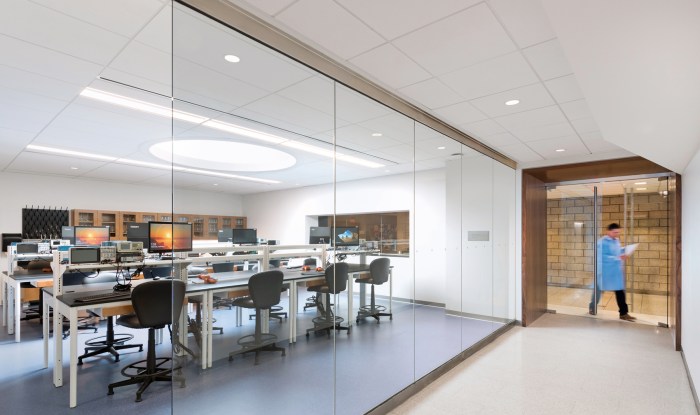Becton Engineering and Applied Science Center stands as a beacon of innovation and interdisciplinary collaboration within Cornell University. Established in [year], the center has evolved into a thriving hub for research, education, and industry partnerships, shaping the future of engineering and applied science.
At the heart of the center’s mission lies a commitment to pushing the boundaries of knowledge and fostering a dynamic learning environment. With a focus on biomedical engineering, materials science, and nanotechnology, researchers at the center engage in groundbreaking projects that address real-world challenges.
Becton Engineering and Applied Science Center Overview

The Becton Engineering and Applied Science Center (BEASC) at Cornell University is a world-renowned hub for cutting-edge research, innovation, and education in engineering and applied science. Established in 2004, the center’s mission is to advance knowledge and solve complex societal challenges through interdisciplinary collaboration, fostering a vibrant ecosystem for scientific discovery and technological breakthroughs.
Research and Innovation at the Center
BEASC is a powerhouse of research, with a focus on biomedical engineering, materials science, and nanotechnology. Key research areas include biomaterials and tissue engineering, advanced imaging and diagnostics, and sustainable energy solutions. The center’s researchers are engaged in groundbreaking projects that have led to advancements in medical devices, drug delivery systems, and renewable energy technologies.
BEASC fosters a collaborative environment, partnering with industry leaders and external institutions to translate research into real-world applications.
Educational Programs and Student Engagement: Becton Engineering And Applied Science Center

BEASC offers a range of graduate and undergraduate degree programs in engineering and applied science. The center’s educational philosophy emphasizes experiential learning and hands-on research opportunities. Students have access to state-of-the-art facilities and work closely with renowned faculty, engaging in projects that push the boundaries of knowledge.
BEASC also fosters interdisciplinary collaboration, encouraging students to explore the intersections of engineering, science, and medicine.
Facilities and Infrastructure

BEASC boasts a world-class infrastructure, providing researchers and students with access to cutting-edge facilities. The center houses specialized laboratories for biofabrication, nanofabrication, and advanced microscopy. It also features cleanrooms and fabrication facilities that meet the highest industry standards. BEASC is committed to sustainability, incorporating eco-friendly practices and energy-efficient systems into its operations.
Industry Partnerships and Technology Transfer

BEASC plays a vital role in facilitating industry partnerships and technology transfer. The center has established strategic alliances with leading companies, providing opportunities for research collaboration and commercialization of innovative technologies. BEASC supports startups and entrepreneurial ventures, fostering a culture of innovation and economic development.
The center’s efforts have resulted in the creation of new businesses and the creation of high-value jobs in the region.
Essential FAQs
What is the primary focus of research at Becton Engineering and Applied Science Center?
The center’s research areas include biomedical engineering, materials science, and nanotechnology, with a focus on addressing real-world challenges.
How does the center foster interdisciplinary collaboration?
The center provides opportunities for students and researchers from different engineering and science disciplines to work together on projects, fostering cross-disciplinary perspectives.
What is the role of the center in industry partnerships?
The center facilitates collaborations with industry partners, supporting startups and the commercialization of research成果.